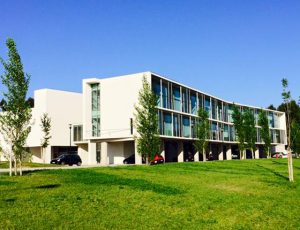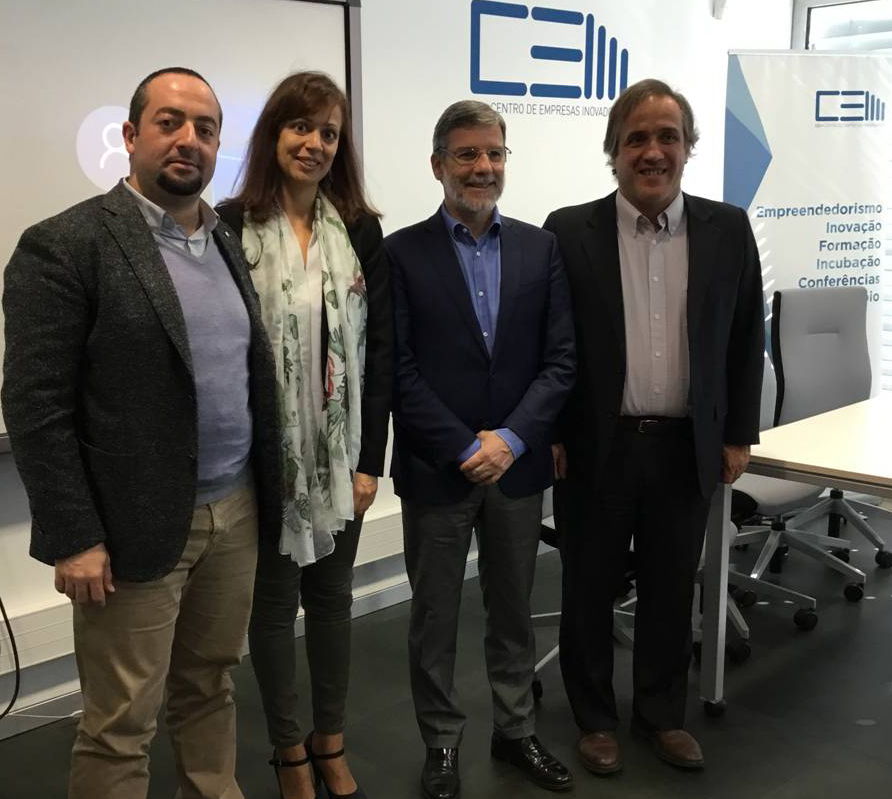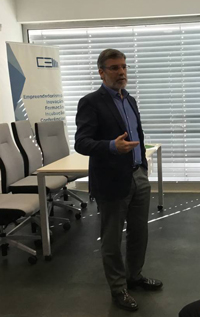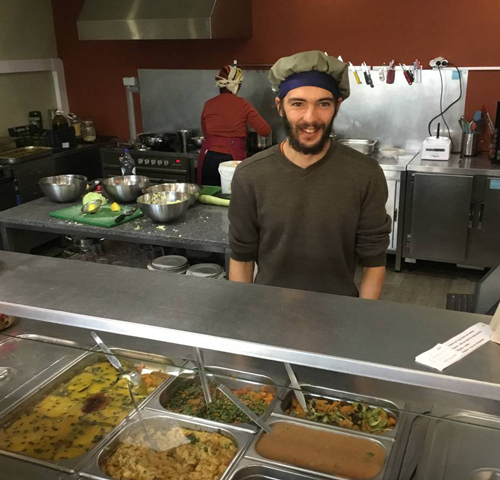 Our Footprint tour reached its final stop when we presented the Footprint and biocapacity analysis for the municipality of Castelo Branco at the Centro de Empresas Inovadoras. The room was crowded with nearly 50 participants from diverse backgrounds. Attendees included representatives from several of the 19 local parishes of the municipality, schools, social institutions working on food provision, forest associations, Polytechnic Institute of Castelo Branco, local associations, natural and protected area managers, as well as local media.
Our Footprint tour reached its final stop when we presented the Footprint and biocapacity analysis for the municipality of Castelo Branco at the Centro de Empresas Inovadoras. The room was crowded with nearly 50 participants from diverse backgrounds. Attendees included representatives from several of the 19 local parishes of the municipality, schools, social institutions working on food provision, forest associations, Polytechnic Institute of Castelo Branco, local associations, natural and protected area managers, as well as local media.
The meeting was opened by Dr. Luís Correia, mayor of the municipality of Castelo Branco. He welcomed the Footprint and biocapacity results and explained they are essential to help inform the municipality’s decision making related to environmental issues and serve as guidance for its environmental strategies. In a candid moment, Dr. Correia admitted his surprise when he recently first saw the Footprint results and reaffirmed his commitment to and support of the project.
Paulo Magalhães, city Footprinting project coordinator at ZERO, presented the project goals and phases and underscored the importance of cities as powerful actors for sustainability. Alessandro Galli, Global Footprint Network’s director of the Mediterranean program, presented the Ecological Footprint methodology and global results linking to today’s release of the Living Planet Report 2018.
The Ecological Footprint and biocapacity results for the municipality of Castelo Branco for the year 2016 were presented by Sara Moreno Pires, professor at the University of Aveiro:
-

From left to right: Alessandro Galli, Sara Moreno Pires, Dr. Luís Correia, and Paulo Magalhães. Among the 6 municipalities involved in this study, Castelo Branco contributes the most to the total biocapacity of Portugal (about 1% of the national total).
- The Ecological Footprint was 4.02 global hectares (gha) per person, 2% larger than national average
- Biocapacity was 2.31 global hectares (gha) per person, 80% larger than the national average.
- We would need 2.4 planets if the world’s population lived like the residents of Castelo Branco.
- The Municipal Overshoot Day is May 30.
- Food represents the largest share of Castelo Branco’s Footprint (30%) followed by transportation (23%). The large food Footprint is mostly due to residents’ demand for seafood (26% of the food Footprint) and meat products (25%), confirming the findings of a recent study that showed Portugal as the country in the EU with the highest per capita fish consumption in a year (61.5 kg).
Prof. Moreno Pires emphasized that car-free areas in the municipality, cycling lines, and other similar policies could help reduce the municipality’s Footprint. She also highlighted the importance of preserving and maintaining the local biocapacity.
Paulo Magalhães coordinated an animated debate on topics including: the need for policies to focus on food quality; consuming local food to reduce food miles; and transportation. Other participants pointed out the desire for municipalities to educate citizens, not just children at schools, so that people are aware of more sustainable options and alternatives.
 The debate was closed by mayor Luís Correia (pictured right), who summarized the following key points:
The debate was closed by mayor Luís Correia (pictured right), who summarized the following key points:
- The results of the study are very important for the municipality, as it helps to see and realize the importance of our biocapacity.
- Investing in preserving forests, green spaces, and urban gardens is key, as well as planning local farmers markets, to reconnect consumers with small local producers.
- We can consider introducing electric public vehicles as well as providing alternative taxes to favor high energy efficiency.
As the tour came to a close, the Portugal city Footprint team learned about a vegetarian restaurant in Castelo Branco that also serves as an organic market for the community. Not only did they enjoy the food and a chance to “walk the talk,” the team liked seeing local farmers deliver their supply of locally-grown vegetables to the restaurant. What a fantastic way to end the tour.

For the complete list of public events on the six-day road tour of the Ecological Footprint of the Portuguese Municipalities Project, please click here.


